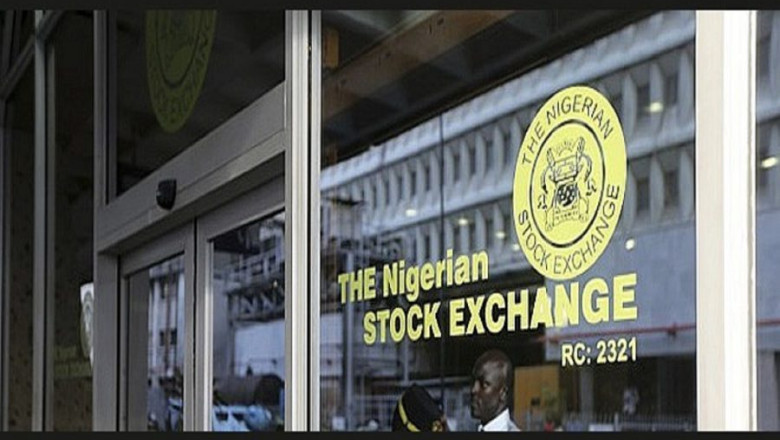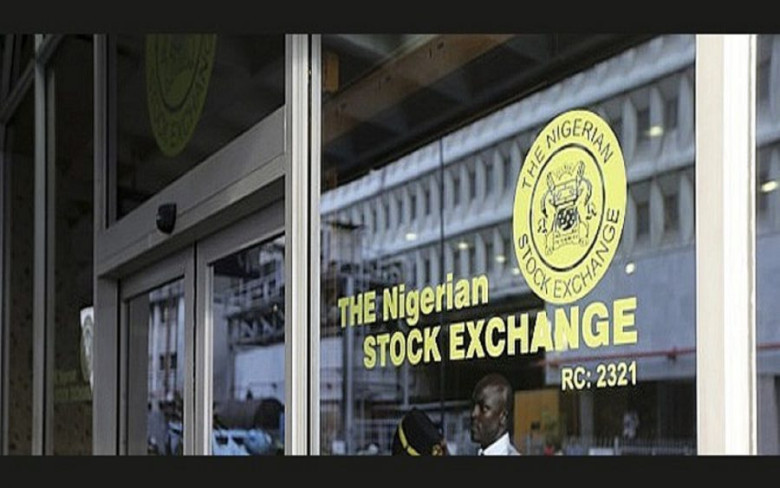views


Historical Background
The economic reforms which began in 2003 under the then Chief Olusegun Obasanjo-led Presidency had a concomitant positive effect on the Nigerian Capital Market. Between 2004 and 2007, the Nigerian stock market witnessed a gargantuan economic boom as the stocks more than tripled in a year within a year.
However, doomsday reminiscent of the 1929 United States stock market crash came calling for the Nigerian stock market as a result of the global financial crisis which had a deleterious effect on it in 2008. The stock market lost about 6.96 trillion naira within a short space of nine months.
This led to an instant loss of confidence in the stock market as some Nigerians resorted to suicide having lost their life savings – some of them at the twilight of their lives in a country that offers no buffer for the aged.
As It Stands Now
Confidence has long returned to the Nigerian Capital Market as the stock market has been greatly deepened by more players.
More importantly, investor confidence has since returned to the once-beleaguered market.
Trillions of naira is now being traded on a daily basis with some investors making their investments there a huge source of passive income and a hedge against public policy flip-flops.
Views from Experts
Mr. Chuks Anyanwu, a retail banker with Investors Bank in the US said that there are vast opportunities in the Nigerian Stock Market as opportunities are created in uncertainties.
He said in endorsement of the Nigerian Stock Market: “The management of the respective companies and the historical financial performance of the company. Also, fiscal and monetary policies as well as macro -economics play a key part”.
The New Jersey-based banker went on to say: in his preference for fundamental analysis which is used to critically analysis what stocks to buy “I prefer fundamentals but a fine blend of technical analysis helps. Fundamentals can be substantiated but technical analysis is too mechanical for me. Economics is fluid and a social science.”
When asked which sector of the economy was the most lucrative he responded: “I like the industrial goods sector, financial services, and ICT. But I also like individual companies which is why company management is an important aspect of my investment decisions.”
He concluded by suggesting ways to deepen the market when he rounded off by opining: “: The exchange needs to be competitive and capital enough for the big unlisted multinationals to get interested and be grassroots focused to help startups raise capital. They must be big and also nimble through creative product offerings to attract both segments”.
David Adonri, CEO of Highcap Securities Ltd said that investing in the Nigerian Capital Market is reasonably safe, liquid, and profitable.
He then said that certain things should be taken into consideration when thinking about which stocks should be purchased. He said: “First, an investor has to be profiled to establish his or her risk tolerance level. Next, the investment objective is marched with the risk appetite. Based on these, securities are selected to meet the investment goal.”
Mr. David Adonri is silent on whether he prefers the fundamental analysis to the technical when he averred: “ Investment analysis start from fundamentals of both the economy and the issuer of Securities. It ends with the technical analysis of the market as it affects price movement of the security.”
Yet again he doesn’t single out any sector of the Nigerian economy as the best for investing in. “There are winners in every sector of the Capital Market. The investment goal will determine the asset classes to invest in. Whether the goal is steady income, growth, or preservation of capital, there are instruments across the market that can be assembled.”.
He rounded off by giving some advice on why more companies should be listed on it when he said: “For investors' protection, every company that intends to list must meet certain minimum standards. Listed companies must also comply with post-listing requirements. Many companies can meet these conditions and are hereby encouraged to list so as to reap the attendant benefits”.
Another securities trader and dealing member of the Nigerian Stock Exchange who spoke anonymously said that the Nigerian stock market has gained 27% this year, with over 10 stocks recording 100% gains year to date.
When asked what investors should look out for before investing in a publicly quoted company on the Nigerian Stock Exchange, he said: “The fundamentals of the company, are they growing, does the company have earnings growth, are they doing anything strategic I.e. M&A or buyback, are they improving operating margins.”
He preferred the fundamental analysis to the technical when he said: “Fundamental Analysis is always better because you are analyzing based on more objective parameters such as ratios i.e. price to earnings comparable with peers, P/B... and you are buying based on earnings growth and dividend payout.”
He endorsed the financial services sector as the most stable when he said: “Sectors vary year by year this year has been for the banks. Next year could be for consumer goods and Industrials. it's all based on macro events so top-down approach but overall, the Financials/banks seem more stable.”
He gave a piece of advice that could encourage more companies to list on it when he said: “The exchange can reduce the listing requirements.”
Another stockbroker who also spoke anonymously said that investment in Nigeria's equities market is still lucrative because people still make returns above the inflation rate. Don't forget that the capital market is a long-term investment opportunity, while there are possibilities for short-term speculation, an investment in a stock with good fundamentals always pays off.
He gave some advice on what to look out for when investing in the stock market when he said: “Well there are several factors that should be considered Chief among them are the fundamental of the company, the management, and also the prospects for the sector which the company operates in.”
He said that both the fundamental and technical analysis had their advantages and disadvantages and that none was better than the other. He continued by saying: “None is better as they both have their pros and cons. But I depend more on fundamentals analysis during earnings season and use technical analysis for momentum, support, and resistance strategies.”
He advised that investing in the stock market was not for the faint of heart when he said: “There is no guarantee of return when you invest in the equities market. But investors are advised to always buy stocks with good dividend yield and sound fundamentals.”
He concluded by saying that the government should ensure that more companies get listed in the capital market when he said: “For more companies to get listed, I believe that there should be more incentives from the government to encourage them. Maybe tax rebates or some privileges for going public.”
Way Forward
The government has a sturdy role to play to ensure that capital market infractions are kept as minimal as possible to encourage both local and foreign firms to list as the Rule of Law is a key attribute in attracting investments. This will also prevent foreign investors from being mere portfolio investors as it is only long-term investments that are in Nigeria’s best interest since we need jobs, jobs, and more jobs for our hungry and angry youths who are teetering on the brink of despondency.
The enabling environment should be created by the government to encourage as many solvent firms to list and the media should set the economic agenda for the capital market to effectively monitor the beat by praising its wins and providing constructive criticism when necessary.
The fact that brands like Seplat are dually listed on the Nigerian and London Stock Exchanges as well as Oando which is listed on the Nigerian and Johannesburg Stock Exchanges is an indication of what is to come as Africa is the next big phenomenon in business but are we adequately prepared?












Comments
0 comment